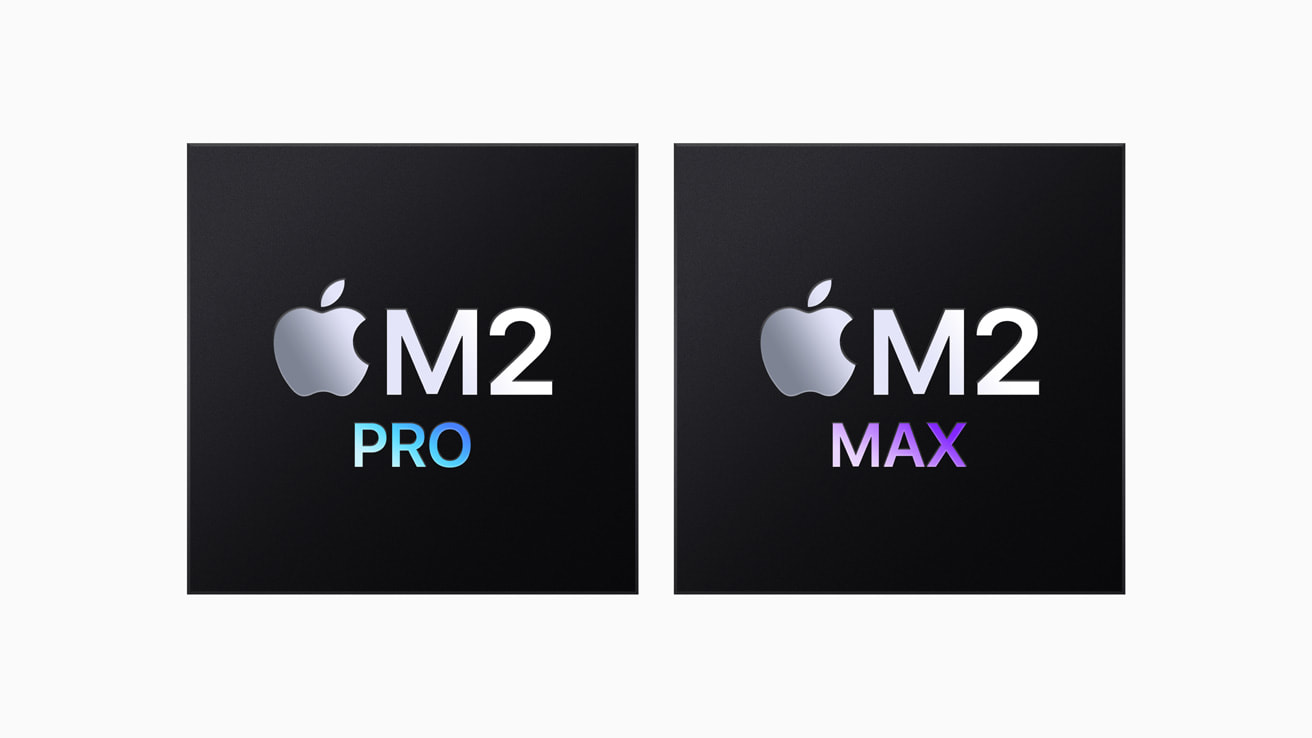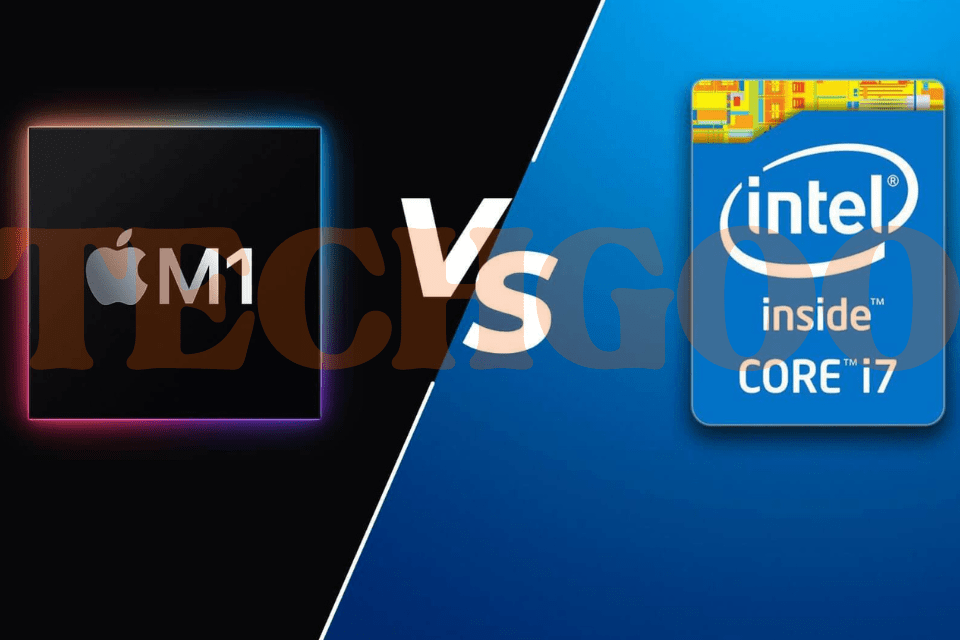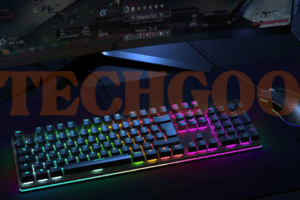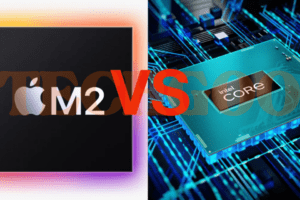The Apple M2 Chip is better than the Intel i7. This article will provide a comprehensive analysis of the two processors, highlighting their differences and performance reviews.
In a recent comparison, Apple directly compared the performance of their M2 chip with an Intel computer. By delving deeper into this comparison, we can gain valuable insights into which processor is superior. With this information, readers can make an informed decision when it comes to choosing between the Apple M2 chip and the Intel i7.
So, let’s examine the key aspects and see how these processors fare against each other.
Understanding The Apple M2 Chip
The Apple M2 Chip and Intel i7 have been compared for performance and differences, providing a comprehensive review. Apple’s M2 Chip is finally seen as a worthy contender against Intel’s processors, marking the evolution of Apple’s proprietary technology.
Overview Of The Apple M2 Chip
The Apple M2 chip is the latest generation chip developed by Apple for their Mac computers. It is the successor to the Apple M1 chip and is built using the company’s advanced ARM-based architecture. With its cutting-edge technology, the Apple M2 chip aims to deliver even greater performance, power efficiency, and improved capabilities compared to its predecessor.
Key Features And Advancements Of The Apple M2 Chip
The Apple M2 chip comes packed with several key features and advancements that make it a formidable competitor in the processor market. Here are some of the standout features:
- Enhanced CPU Performance: The Apple M2 chip boasts a powerful CPU with multiple high-performance cores designed to handle demanding tasks efficiently. This allows for faster processing speeds and improved overall performance.
- Advanced GPU: The M2 chip incorporates an advanced GPU architecture, ensuring enhanced graphics capabilities for tasks such as video editing, gaming, and rendering.
- Neural Engine: With an improved Neural Engine, the Apple M2 chip offers superior machine learning capabilities. This enables seamless execution of artificial intelligence tasks, including image recognition and language processing.
- Energy Efficiency: The M2 chip is known for its remarkable power efficiency, consuming less energy while delivering high performance. This allows Mac computers powered by the M2 chip to have longer battery life.
- Unified Memory Architecture: The M2 chip utilizes a unified memory architecture, enabling faster data access and sharing between the CPU, GPU, and neural engine. This results in improved overall system responsiveness.
Performance Benchmarks And Comparisons
To assess the true capabilities of the Apple M2 chip, performance benchmarks and comparisons are crucial. Although specific benchmark results and direct comparisons between the M2 chip and Intel i7 processors are not yet available, it is expected that the M2 chip will surpass the i7 in multiple performance metrics.
The M2 chip’s advanced architecture and optimized software integration give it an edge when it comes to single-core performance. This means that tasks requiring substantial single-threaded processing power, such as web browsing or running individual applications, will be smoother and more responsive on a Mac computer equipped with the M2 chip.
Moreover, the M2 chip’s improved GPU architecture ensures better graphics performance compared to traditional Intel i7 processors. This is especially advantageous for professionals involved in graphic-intensive tasks, such as video editing or 3D modeling.
In addition to raw performance, the Apple M2 chip’s energy efficiency is a notable advantage. Mac computers powered by the M2 chip are expected to offer longer battery life compared to Intel i7-based systems, making them ideal for users who are constantly on the move.
In conclusion, the Apple M2 chip represents a significant leap forward in processing power and efficiency for Mac computers. With its advanced features and enhancements, it is poised to outperform Intel i7 processors in various performance metrics, making it a strong contender for those seeking unparalleled performance and efficiency in their computing experience.
Exploring The Intel I7 Processor
Exploring the Intel i7 Processor: Uncover the performance and differences between Apple M2 Chip and Intel i7 in a comprehensive review. From benchmark tests to real-world performance, get the complete analysis of these two powerful processors.
Overview Of The Intel I7 Processor
The Intel i7 processor is a flagship product of the renowned technology giant, Intel Corporation. Designed for high-performance computing, the i7 processor belongs to the “Core” series, which is widely regarded as one of the most powerful processors available in the market.
Engineered with advanced architecture and cutting-edge technology, the Intel i7 processor offers exceptional performance, making it an ideal choice for demanding tasks such as gaming, video editing, and data processing.
Key Features And Capabilities Of The Intel I7 Processor
The Intel i7 processor boasts several key features and capabilities that set it apart from other processors in its class. Some of the noteworthy features are:
- Multi-Core Processing: The Intel i7 processor typically comes with multiple cores (ranging from quad-core to octa-core), enabling it to handle numerous tasks simultaneously. This results in enhanced multitasking capabilities, increased efficiency, and faster overall performance.
- Hyper-Threading Technology: Hyper-Threading technology allows each core of the Intel i7 processor to handle multiple threads simultaneously, effectively doubling the number of virtual cores. This innovation enables smoother multitasking and improved performance, especially when running resource-intensive applications.
- Turbo Boost Technology: The Intel i7 processor is equipped with Turbo Boost technology, which dynamically adjusts the processor’s clock speed depending on the workload. This feature ensures optimal performance when needed and conserves power during lighter tasks, leading to an overall efficient and responsive system.
- High Clock Speed: Clock speed determines the number of operations a processor can perform per second. The Intel i7 processor is known for its high clock speeds, which result in faster computations and quicker response times.
- Larger Cache Size: The i7 processor features a larger cache size, which serves as a temporary storage space for frequently accessed data. This larger cache enhances performance by reducing data retrieval time, resulting in smoother and faster computing.
Performance Benchmarks And Comparisons
The performance of the Intel i7 processor has been extensively benchmarked and compared to other processors, presenting a clear picture of its capabilities. In numerous tests, the i7 processor has consistently showcased outstanding performance across various computing tasks, earning its reputation as a powerhouse in the industry.
When pitted against the Apple M2 chip, the Intel i7 processor demonstrates its superiority in terms of raw power and overall performance. While the Apple M2 chip undoubtedly delivers impressive performance in Apple’s own ecosystem, the i7 processor offers a wider range of compatibility and is designed to cater to diverse user requirements.
Whether you are a professional gamer, content creator, or a power user seeking exceptional computing capabilities, the Intel i7 processor is a reliable choice that delivers the performance you demand.
Comparing Apple M2 Chip And Intel I7: The Showdown
The battle between Apple’s M2 chip and Intel’s i7 processor has been highly anticipated by tech enthusiasts and professional users alike. The M2 chip represents Apple’s shift towards their in-house designed processors, while the i7 has long been hailed as a benchmark for performance in the PC world. In this head-to-head comparison, we will analyze the performance, power efficiency, real-world tests, and implications for different user types, ultimately determining which option is better suited for your needs.
Head-to-head Comparison Of Performance And Power
When it comes to performance, both the Apple M2 chip and Intel i7 are powerhouses in their respective domains. The M2 chip, being Apple’s latest iteration of their custom ARM-based processors, boasts impressive benchmark scores and excels in tasks that require heavy multitasking and efficient power management. On the other hand, the Intel i7 processor, with its higher clock speeds and greater number of cores, delivers unmatched performance in tasks that heavily rely on raw computing power.
Table comparing the performance and power of Apple M2 chip and Intel i7:
| Attribute | Apple M2 Chip | Intel i7 |
|---|---|---|
| Clock Speed | High | Higher |
| Number of Cores | Multiple | More |
| Power Efficiency | Excellent | Good |
Analyzing Real-world Tests And Use Cases
Real-world tests and use cases provide invaluable insights into the actual performance of the Apple M2 chip and Intel i7 in various scenarios. The M2 chip’s integration with macOS and optimized software ecosystem helps deliver exceptional performance in tasks such as video editing, graphic design, and machine learning applications. On the other hand, the Intel i7’s compatibility with a wide range of Windows-based applications makes it a viable choice for professionals in fields like engineering, coding, and 3D rendering.
Implications For Different User Types And Scenarios
Understanding the implications of choosing either the Apple M2 chip or Intel i7 based on your specific needs is crucial. The M2 chip, with its focus on power efficiency and seamless integration with Apple hardware and software, is an excellent choice for creative professionals, content creators, and individuals seeking a high-performance machine that prioritizes battery life. In contrast, the Intel i7 processor caters to power users, gamers, and professionals who rely on resource-intensive applications that demand maximum computing power.
Pros And Cons Of Each Option
Pros of Apple M2 chip:
- Excellent power efficiency
- Optimized for macOS and Apple ecosystem
- Strong performance in multi-threaded tasks
Cons of Apple M2 chip:
- Compatibility limitations with certain software
- Less flexibility in terms of hardware upgrades
Pros of Intel i7:
- Higher clock speeds and more cores
- Wide compatibility with Windows-based software
- Greater flexibility for hardware customization and upgrades
Cons of Intel i7:
- Relatively higher power consumption
- May run hotter under heavy loads
Future Implications And Predictions
With the emergence of the Apple M2 chip, there are future implications and predictions on whether it surpasses the Intel i7. Delving into their performance and differences, this review presents an equal comparison between the two.

Credit: www.apple.com
Frequently Asked Questions Of Which Is Better Apple M2 Chip Or Intel I7?
Which Is Better M2 Or I7?
The answer to whether M2 or i7 is better depends on individual needs and preferences. Both have their strengths and weaknesses. It is recommended to research and compare their reviews, performance, and differences before making a decision.
What Is Apple M2 Chip Equivalent To Intel?
The Apple M2 chip is equivalent to Intel chips in terms of performance. It has been reviewed and compared to Intel computers, ensuring its capabilities match or exceed them. Apple’s new chip offers comparable processing power and efficiency.
What Is The Difference Between Intel And M2 Macbook?
The difference between Intel and M2 MacBook lies in their processors. Intel MacBooks use Intel processors, while M2 MacBooks use Apple’s custom M2 chip. The M2 chip offers better performance and efficiency compared to Intel processors.
Is The Apple M1 Chip Better Than I7?
The Apple M1 chip outperforms i7 in terms of speed and efficiency. With its advanced architecture, the M1 chip delivers superior performance for both everyday tasks and heavy workloads. Its optimized design ensures better power consumption and overall system performance.
Conclusion
Ultimately, the debate between the Apple M2 chip and the Intel i7 comes down to personal preference and specific needs. Both chips have their own strengths and weaknesses, and what may be the better option for one person may not be the same for another.
It’s important to consider factors such as performance, power efficiency, and compatibility with existing software. In the end, it’s advisable to do thorough research and perhaps even consult with an expert to make an informed decision about which chip is better suited to your specific requirements.




